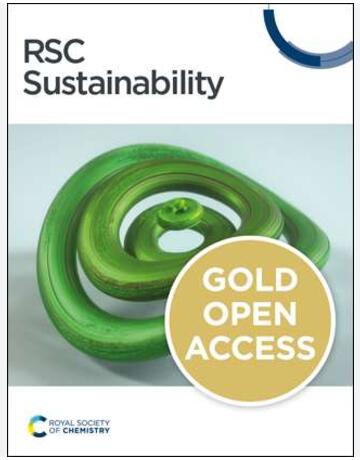Effect of Battery Electric Vehicles on Greenhouse Gas Emissions in 29 European Union Countries
IF 3.3
3区 环境科学与生态学
Q2 ENVIRONMENTAL SCIENCES
引用次数: 48
Abstract
This analysis explored the effect of battery electric vehicles (BEVs) on greenhouse gas emissions (GHGs) in a panel of twenty-nine countries from the European Union (EU) from 2010 to 2020. The method of moments quantile regression (MM-QR) was used, and the ordinary least squares with fixed effects (OLSfe) was used to verify the robustness of the results. The MM-QR support that in all three quantiles, economic growth causes a positive impact on GHGs. In the 50th and 75th quantiles, energy consumption causes a positive effect on GHGs. BEVs in the 25th, 50th, and 75th quantiles have a negative impact on GHGs. The OLSfe reveals that economic growth has a negative effect on GHGs, which contradicts the results from MM-QR. Energy consumption positively impacts GHGs. BEVs negatively impacts GHGs. Although the EU has supported a more sustainable transport system, accelerating the adoption of BEVs still requires effective political planning to achieve net-zero emissions. Thus, BEVs are an important technology to reduce GHGs to achieve the EU targets of decarbonising the energy sector. This research topic can open policy discussion between industry, government, and researchers, towards ensuring that BEVs provide a climate change mitigation pathway in the EU region.电池电动汽车对29个欧盟国家温室气体排放的影响
这项分析探讨了2010年至2020年欧盟29个国家组成的小组中电池电动汽车对温室气体排放的影响。使用矩分位数回归(MM-QR)方法,并使用具有固定效应的普通最小二乘法(OLSfe)来验证结果的稳健性。MM-QR支持在所有三个分位数中,经济增长对温室气体产生积极影响。在第50和第75个分位数,能源消耗对温室气体产生积极影响。第25、第50和第75分位数的纯电动汽车对温室气体有负面影响。OLSfe揭示了经济增长对温室气体的负面影响,这与MM-QR的结果相矛盾。能源消耗对温室气体产生积极影响。纯电动汽车对温室气体产生负面影响。尽管欧盟支持更可持续的交通系统,但加快采用纯电动汽车仍然需要有效的政治规划来实现净零排放。因此,纯电动汽车是减少温室气体以实现欧盟能源部门脱碳目标的重要技术。这一研究主题可以开启行业、政府和研究人员之间的政策讨论,以确保纯电动汽车在欧盟地区提供缓解气候变化的途径。
本文章由计算机程序翻译,如有差异,请以英文原文为准。
求助全文
约1分钟内获得全文
求助全文
来源期刊

Sustainability
ENVIRONMENTAL SCIENCES-ENVIRONMENTAL SCIENCES
CiteScore
6.80
自引率
20.50%
发文量
14120
审稿时长
17.72 days
期刊介绍:
Sustainability (ISSN 2071-1050) is an international and cross-disciplinary scholarly, open access journal of environmental, cultural, economic and social sustainability of human beings, which provides an advanced forum for studies related to sustainability and sustainable development. It publishes reviews, regular research papers, communications and short notes, and there is no restriction on the length of the papers. Our aim is to encourage scientists to publish their experimental and theoretical research relating to natural sciences, social sciences and humanities in as much detail as possible in order to promote scientific predictions and impact assessments of global change and development. Full experimental and methodical details must be provided so that the results can be reproduced.
 求助内容:
求助内容: 应助结果提醒方式:
应助结果提醒方式:


